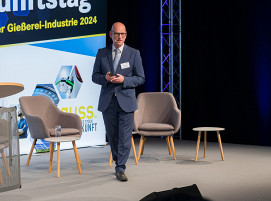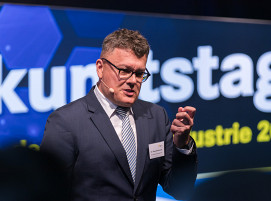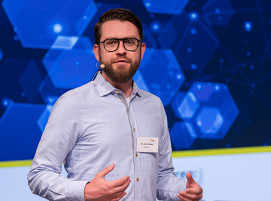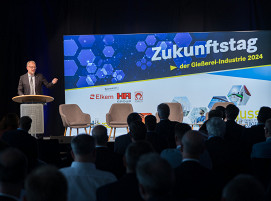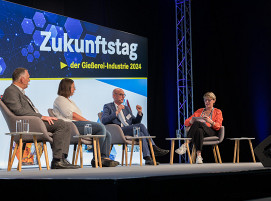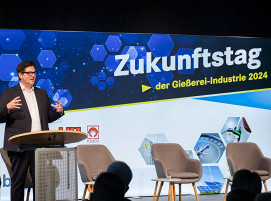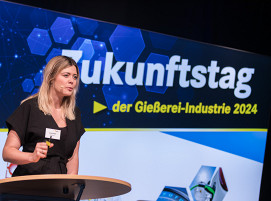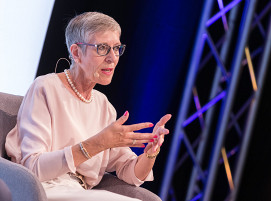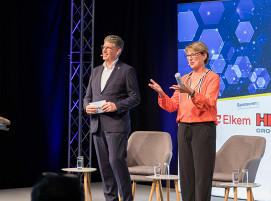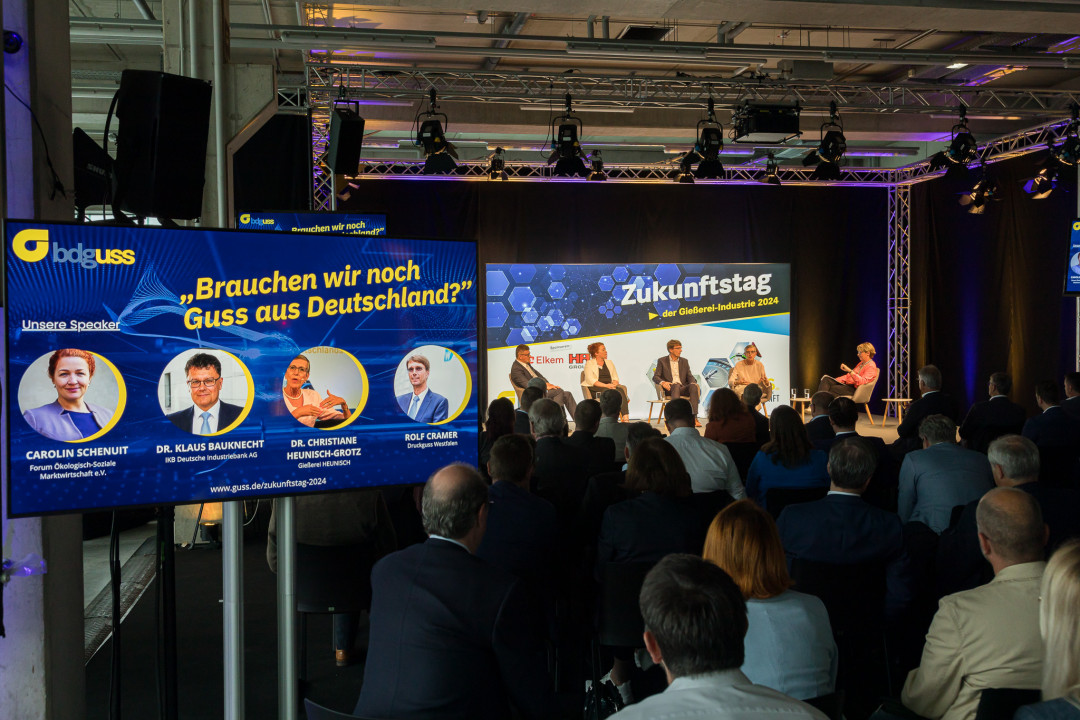
The German foundry industry is an energy-intensive SME – a combination that does not have an easy time of it in times of transformation and a shortage of skilled workers. "We have become visible – because we need a lot of energy. And that is suddenly something very bad," said Clemens Küpper, who has just been re-elected as president of the BDG, in his opening speech.
The consequences are all too present for the foundry managers who attended the 3rd BDG Future Day of the German Foundry Industry in person at the association's headquarters in Düsseldorf or via a live stream. Excessive reporting requirements, uncertain framework conditions, high energy prices and concerns about the next generation are pushing many companies to their limits. "Energy costs, network fees and long-term contracts – these are conditions that other countries do not have because they have governments that take care of them," summarises the old and new BDG president. His demand: "Network fees must be a national task, they must not be passed on to individual companies."
The welcome address basically summarised what the individual keynote speeches and panel discussions then explored in greater depth from different perspectives. Carolin Schenuit, Green Budget Germany – Forum Ökologisch-Soziale Marktwirtschaft (FÖS), for example, also recognises the contradictions in Berlin's policy, the lack of awareness of the middle class and Germany's isolated position in European climate protection policy. "For strategic and resilience reasons, we definitely need cast products from Germany," she says, but also speaks of the international appeal of what is implemented in Germany. Her advice: targeted lobbying in Berlin on the one hand and personal commitment in local politics on the other.
Dr Klaus Bauknecht is Chief Economist at IKB Deutsche Industriebank AG. He is counting on an investment boost. "The upper middle class is not investing at the moment, not even abroad." An economic upturn would solve many problems. "If the car is not moving, I can't steer it either." There are signs of economic recovery – but an investment boost is only conceivable if the framework conditions are absolutely secure. "We don't see this recovery, it won't be significant," says Dr Christiane Heunisch-Grotz, Heunisch Foundry. Together with Rolf Kramer, Managing Director of Druckguss Westfalen, she calls for reliability and competitive energy prices in the panel discussion with the speakers. "We are dealing with reporting obligations instead of taking care of our production, and we are producing a lot of what is important for the transformation," Rolf Kramer complains about the status quo.
Bertram Kawlath, Vice President of the VDMA and Managing Director of Schubert&Salzer, sees the situation as a cyclical dip and sees light at the end of the tunnel. And despite all the affirmation of Germany as a casting location, the VDMA is European in its orientation. In the discussion with Philipp West, Luitpoldhütte, and Ronald Krug, AGCO, however, a commitment to casting in Germany and the demand for stable framework conditions (Philipp West: "Companies need ten to twelve years of planning security") and a common level playing field in Europe once again crystallised.
Attracting, retaining and developing skilled workers in a labour market – the afternoon was dedicated to innovative approaches to recruiting. The BDG itself provided a particularly prominent example. It awarded the winner of its apprentice competition. The apprentices from various foundries had reported on Tik Tok in short vlogs about their everyday lives. The prize of 1,500 euros went to Lea Pugliese from STIHL.
Economic policy in the morning and the human component in the afternoon – BDG CEO Max Schumacher was satisfied. In the end, however, the most urgent appeal to politicians remained: "Create the right framework conditions and then let companies do their work. That's how we will become more competitive again."
A detailed report on the 3rd Future Day of the Foundry Industry will appear in the GIESSEREI 07-2024 and in the next association magazine, the BDG report.


